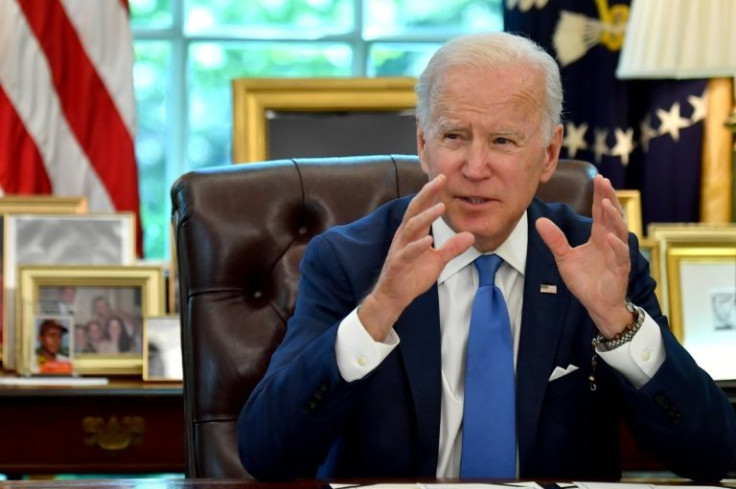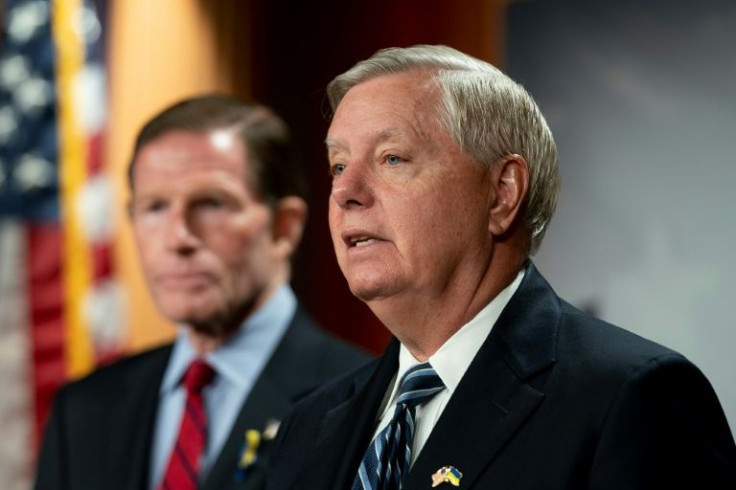US Takes First Step To Approve $40 Bn In Ukraine Aid
US lawmakers voted Tuesday to send a $40 billion aid package to Ukraine, as Washington warned that Russia was likely girding for a long conflict with its neighbor.
The defense, humanitarian and economic funding passed the House of Representatives by 368 votes to 57, with the two parties' leaders having already reached an agreement on the details. It will likely pass the Senate by the end of the week or next week.
All the dissenting votes came from the Republican ranks.
"With this aid package, America sends a resounding message to the world of our unwavering determination to stand with the courageous people of Ukraine until victory is won," House Speaker Nancy Pelosi told her Democratic colleagues ahead of the vote.
Congressional leaders struck a deal Monday to release $6.8 billion more than the $33 billion previously requested by the White House to help the Eastern European nation ward off Moscow's invasion.

The financial boost includes an extra $3.4 billion for both military and humanitarian assistance on top of the funding requested by the administration.
If the package passes the Senate as expected, US spending to bolster Ukraine's defenses against Russia's invasion and address the ensuing humanitarian crisis will soar to around $54 billion.
The White House applauded Tuesday's vote as a "critical step" toward helping Ukraine "defend their democracy" against Russian aggression.
"As the president said yesterday, we cannot afford any delay in this vital effort," White House press secretary Jen Psaki said in a statement.
"We look forward to continuing to work with Senate leadership to get this bill to the president's desk quickly and keep assistance flowing to Ukraine without interruption."
The aid effort comes as a top US official warned that Russian President Vladimir Putin was preparing for a long war that may not end with Russian victory in the east.

"We assess President Putin is preparing for prolonged conflict in Ukraine during which he still intends to achieve goals beyond the Donbas," Director of National Intelligence Avril Haines said at a hearing on Capitol Hill.
She added that Putin was counting on US and EU resolve to weaken as the conflict continues to cause food shortages and inflation, including spiraling energy prices.
The Democratic leadership had hoped to tie the Ukraine money to $10 billion in new funding for Covid-19 tests, therapeutics and vaccines, with the United States experiencing a new spike in cases as it nears one million deaths.
But they decided against the move as they were unwilling to get drawn into another fight over border control.
Republicans stopped the Covid aid package last month, demanding an amendment vote to keep in place Title 42, the pandemic-related provision used to deny asylum requests and allow the quick expulsion of migrants.
With the policy due to end on May 23, Democrats are reluctant to allow a vote, as several of their moderate lawmakers, and those in tough re-election fights, would likely vote with Republicans.
President Joe Biden said in a statement Monday he was prepared to accept the decoupling of Ukraine and Covid aid, with "approximately 10 days" to go until the current funding for Kyiv runs out.
Two senators -- Republican Lindsey Graham and Democrat Richard Blumenthal -- unveiled a resolution Tuesday calling on Secretary of State Antony Blinken to designate Russia as a state sponsor of terrorism.
"If there is anybody who embodies terrorism, totalitarianism and torture, it is Vladimir Putin," Blumenthal said at a news conference.
The White House and State Department have resisted calls to add Russia to the list, which currently features Cuba, Iran, North Korea and Syria, as Russia is already facing many of the consequences a terror sponsor designation would bring.
© Copyright AFP 2024. All rights reserved.





















